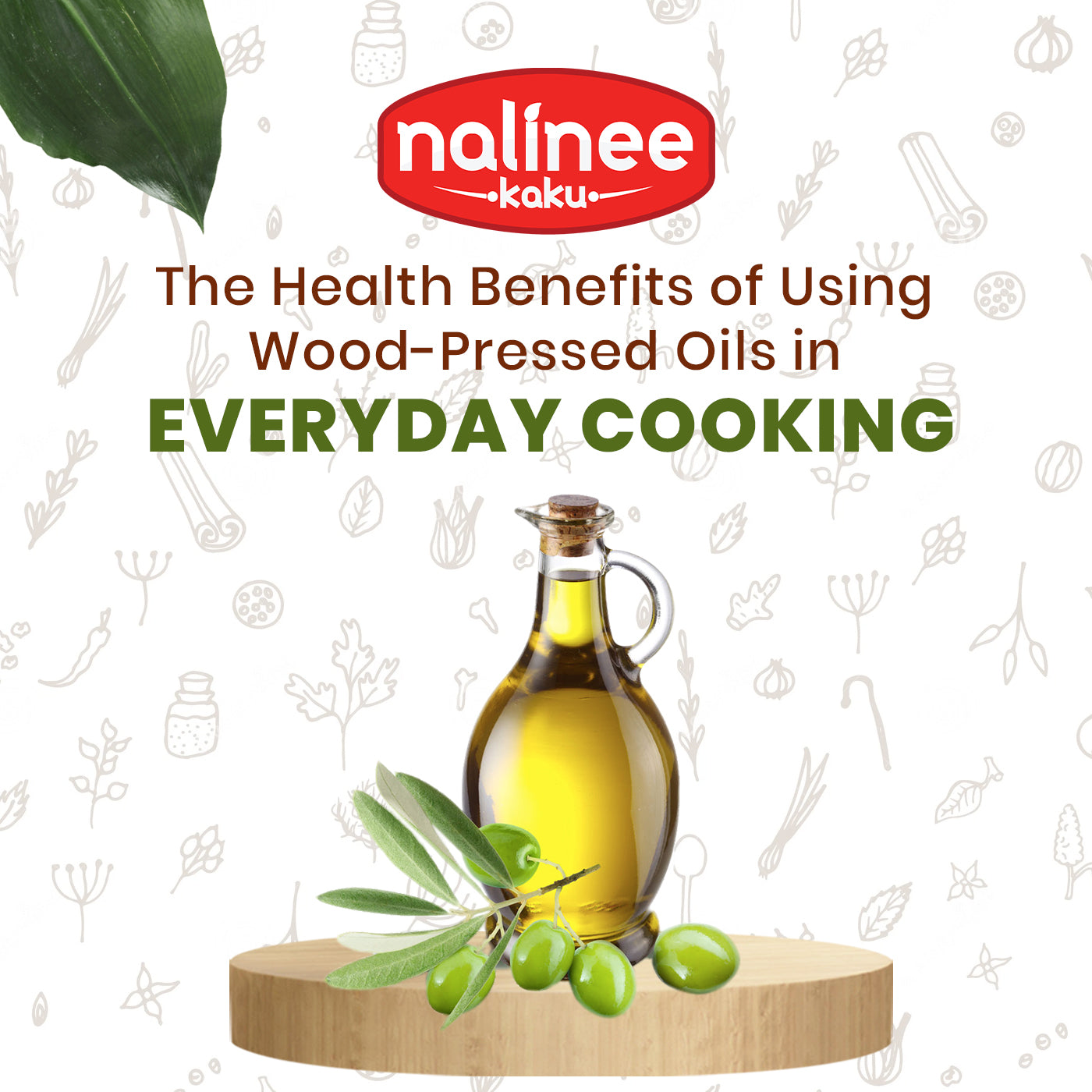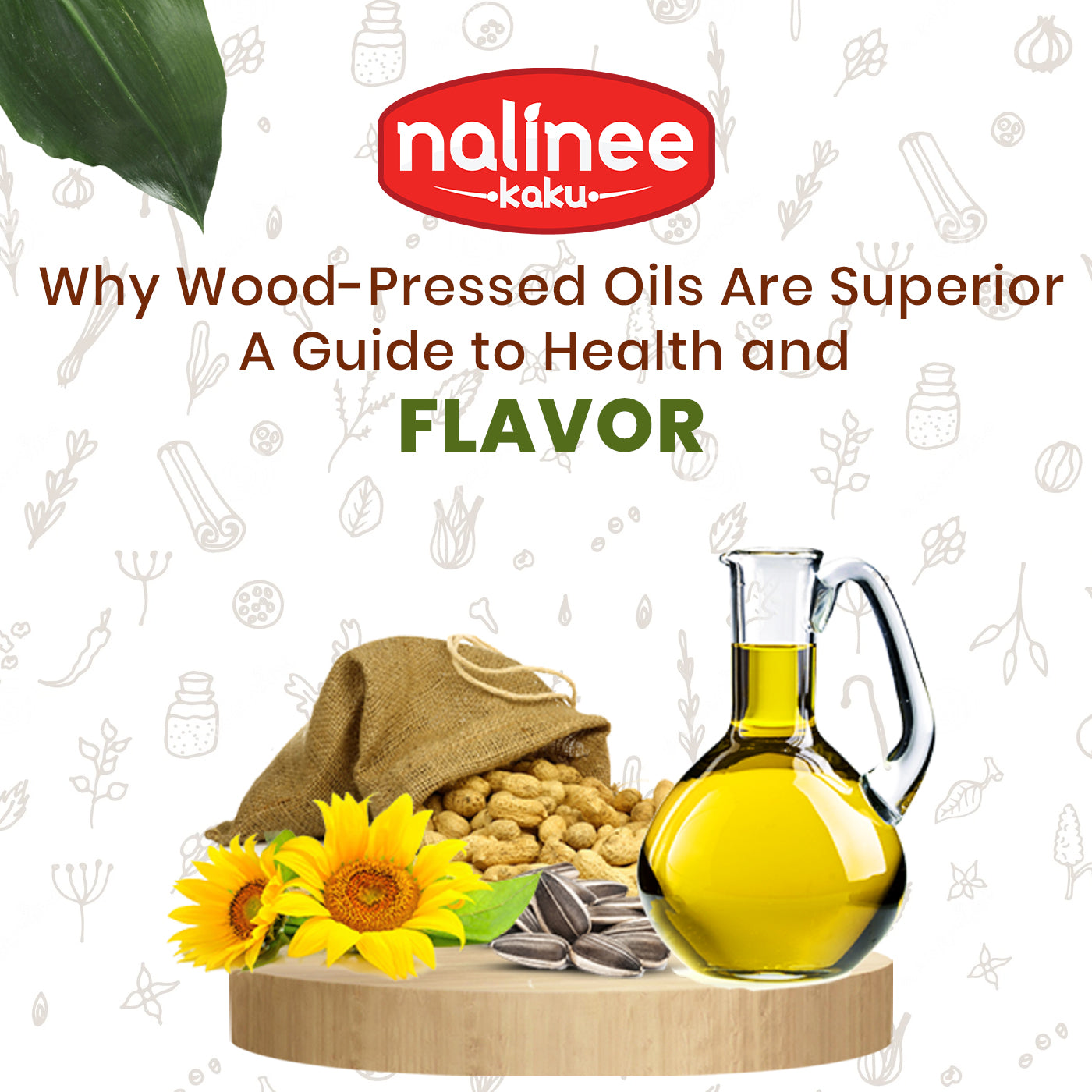The Health Benefits of Using Wood-Pressed Oils in Everyday Cooking
Introduction
In recent years, there's been a resurgence of interest in traditional cooking methods and ingredients. One such ingredient gaining popularity is wood-pressed oil. This traditional method of extracting oil is celebrated for its numerous health benefits and rich flavor profile. But what exactly makes wood-pressed oils a superior choice for your everyday cooking? This blog explores the health benefits of using wood-pressed oils, how they compare to modern extraction methods, and how incorporating them into your diet can positively impact your well-being.
The Extraction Process
Wood-pressed oils, also known as cold-pressed oils, are extracted by crushing oilseeds between two wooden millstones. This method preserves the natural properties of the seeds and ensures that the oil retains its essential nutrients. Unlike modern mechanical extraction processes that involve high heat and chemicals, wood-pressing uses minimal heat and no chemicals, leading to a more natural and wholesome oil.
Nutritional Benefits
a. Rich in Essential Fatty Acids
Wood-pressed oils are rich in essential fatty acids, such as omega-3 and omega-6. These fatty acids play a crucial role in maintaining heart health, reducing inflammation, and supporting brain function. For instance, oils like sesame and groundnut oil provide a balanced ratio of omega-3 and omega-6, which is vital for overall health.
b. Higher Antioxidant Content
The traditional extraction method helps preserve antioxidants present in the oilseeds. Antioxidants, such as vitamin E and polyphenols, help combat oxidative stress and protect cells from damage caused by free radicals. Regular consumption of wood-pressed oils can contribute to better skin health, reduced risk of chronic diseases, and improved immune function.
c. Better Nutrient Retention
Unlike refined oils, wood-pressed oils retain their natural vitamins and minerals. For example, coconut oil extracted using the wood-press method retains more of its medium-chain triglycerides (MCTs) and lauric acid, which have been linked to improved metabolism and enhanced energy levels.
Health Benefits
a. Heart Health
Wood-pressed oils, such as olive and flaxseed oil, are known for their cardiovascular benefits. They help lower bad cholesterol (LDL) levels while increasing good cholesterol (HDL). This balance supports overall heart health and reduces the risk of heart disease.
b. Digestive Health
The natural compounds in wood-pressed oils aid digestion and promote a healthy gut. Oils like castor oil are known for their mild laxative effects, which can help alleviate constipation and support regular bowel movements.
c. Skin Health
Wood-pressed oils are also beneficial for skin health. Oils like almond and jojoba oil are often used in skincare due to their moisturizing properties and ability to soothe irritated skin. The presence of natural antioxidants in these oils helps in maintaining healthy, radiant skin.
Practical Tips for Using Wood-Pressed Oils
a. Cooking Tips
When using wood-pressed oils for cooking, it's important to understand their smoke points. For example, sesame oil has a high smoke point, making it suitable for frying and sautéing. On the other hand, olive oil is best used for dressings and low-heat cooking to preserve its delicate flavor and nutritional properties.
b. Storage
To maintain the quality and freshness of wood-pressed oils, store them in a cool, dark place away from direct sunlight. Using dark glass bottles can help protect the oil from light and prolong its shelf life.
c. Incorporating into Your Diet
Incorporate wood-pressed oils into your daily meals by replacing refined oils in recipes. Experiment with different types of wood-pressed oils to find the one that complements your cooking style and flavor preferences.
Comparison with Modern Extraction Methods
a. Health Impact
Modern extraction methods, such as solvent extraction, often involve high temperatures and chemical solvents, which can strip oils of their natural nutrients and flavor. In contrast, wood-pressed oils retain their natural properties, making them a healthier choice for cooking.
b. Environmental Considerations
Wood-pressed oil production is generally more environmentally friendly compared to industrial extraction methods. The traditional process requires less energy and fewer chemicals, contributing to a more sustainable and eco-friendly approach.
Real-Life Examples
a. Traditional Cooking Practices
Many traditional cuisines around the world rely on wood-pressed oils for their distinctive flavors and health benefits. For example, Indian and Mediterranean cuisines frequently use wood-pressed oils in their cooking, reflecting a deep-rooted appreciation for these natural oils.
b. Success Stories
Several health-conscious individuals and chefs have embraced wood-pressed oils for their culinary and health benefits. Their experiences highlight the positive impact of switching to these traditional oils on both taste and well-being.
Conclusion
Wood-pressed oils offer a range of health benefits that make them a valuable addition to your cooking routine. From their rich nutrient profile to their impact on heart and digestive health, these oils provide a natural and flavorful alternative to modern refined oils. Embrace the tradition of wood-pressed oils and enjoy their benefits in your everyday meals.


